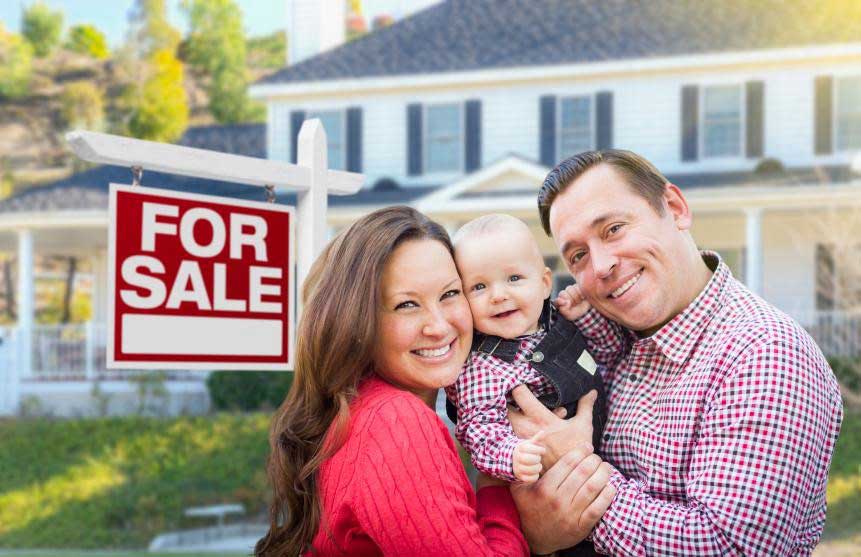Buying a home is no easy decision. It takes months of market research, financial planning, and conversations with experts. Before taking the plunge and signing away with a down payment, consider some of the following 10 common mistakes made by first time home buyers to help you ask the right questions and make sound choices.
Not Knowing Your Budget
One of the most common mistakes made by first time home buyers is poor or lack of budgeting. We all want the perfect home that we’ve dreamed about for years, but knowing if we can actually afford it is vital. What the bank says you can afford and what you actually can are not always on par. Track your monthly expenses, make realistic budgets, and communicate with your partner or anyone you are sharing expenses with.
In addition to your monthly expenses, be sure to include any annual costs and vacations as well. Subtract this from your take-home pay and then you can get a better idea of what you’re able to afford while living comfortably.
Mortgage Qualification
As mentioned above, sometimes what you think you can afford and what the bank is willing to give you is not always on par, especially with those who might have poor credit ratings or unstable monthly incomes. Don’t make the mistake of waiting until you’ve found your perfect home. Ensure you are pre-approved for a mortgage before you start looking. You’ll end up wasting your own time, the agent’s, and the seller’s time.
Also, beware that if you are pre-approved but end up making a purchase that might alter your credit score, it may affect the loan approval for when the time comes to buy a home. Be smart about your mortgage approvals and qualifications.
Additional Expenses
The costs associated with buying a home or condo don’t just end at your monthly payments. Property taxes, insurance, costly repairs, condo fees and maintenance costs, are all additional expenses that you have to consider and work into your budget.
It’s easy to assume that your home will be good to go the minute you sign the papers, but planning for unexpected and additional expenses will leave you in a better spot financially.
Being Too Picky
We all have an idea of what we want and what’s on our dream list of things to look for in a home. While it’s good to have goals, it pays to be flexible. Being too picky may frustrate you and result in a much longer buying period than you planned for.
This might make you end up paying rent for much longer and it might cause you to pass up a really good home. While major things shouldn’t be compromised on, smaller things should be weighed out – can you live with or without those things?
Lack of Vision
There’s a reason why first time home buyers fall in love with show homes. They’re already perfectly decorated and look amazing. When buying a home, don’t be turned off by the state it is in presently. Things like decor, wallpaper/paint, flooring, kitchen appliances etc., can all be replaced, worked on and renovated.
While it may not be possible immediately, often working on upgrades yourself is much cheaper than going with a newly renovated home. Lack of vision is a common mistake made by first time home buyers, as they can’t see past what’s in front of them.
Starry-Eyed
As mentioned above, show homes and model homes look amazing, and often have incorporated small fixture upgrades and tricks to entice buyers. While the homeowner may have only paid a minimum cost for these upgrades, the buyer will end up paying 10x more for them. Have a keen eye when surveying a home, and look for a home that has potential to be fixed up. This will save you money and help bump up your own investment when the time for you to sell comes.
The Big Stuff
Just as much as compromise is important, don’t let the big stuff go. If you are planning for a family in the near future, buying your dream home but with just one bedroom and a den probably isn’t wise. Additionally, buying a condo because it’s cheaper also isn’t the best path to take.
Some compromise is necessary, but ensuring you find something that hits all your major points is important for long-term happiness and smart investing.
Home Inspections
Again, don’t get swept up in all the flashy and new upgrades a homeowner may have installed. Do a thorough check with an expert to figure out what kind of shape the house is in. It may be your dream home, but if there are major flaws in its structure, you’ll be dealing with much bigger problems in the future.
Inspect the home and make note of things that could cause issues later on. Despite your feelings, it could be worth it to let the house go if the problems are big enough.
Hire an Agent
Some people think that they can handle the house buying process on their own, but hiring an agent is in best practice. You want to ensure you are getting sound advice from an expert in the field.
They have experience in asking the right questions, pointing out flaws you may overlook, and getting you the best price. They work for you, so overlooking this step isn’t wise.
Neighbourhood
first time home buyers need to plan for the future. Many people choose an area based on how it is currently, but researching the plans for the future may highly benefit you. That empty space across the street may turn into a busy strip plaza, or a highway could be built in 5 years behind your home.
Contact your city to find out the future plans of your neighbourhood so that you have a good understanding of what’s to come in the future. Long-term happiness is your goal, and that comes with planning.
Avoiding these 10 common mistakes made by first time home buyers will help you get closer to finding your perfect home. Contact us for more information.




